When it comes to choosing a dog, many people look for breeds that are known for their loyalty and companionship. However, some value a dog’s independence, requiring less constant attention and supervision. These independent breeds can be perfect for individuals or families with busy lifestyles or who prefer a less demanding pet. Independence in dogs doesn’t mean they are aloof or less affectionate; rather, it signifies a certain level of self-reliance and confidence. These dogs are often more comfortable being left alone for longer periods and tend to make decisions without always looking to their owners for guidance. This article will explore eight surprisingly independent dog breeds, highlighting popular and lesser-known breeds exhibiting this trait. Each breed has unique characteristics and reasons for its independence, making them suitable for various households.
8. Shiba Inu
The Shiba Inu, a breed originating from Japan, is well-known for its spirited personality and independent nature. Often described as cat-like, the Shiba Inu is a breed that enjoys its own company and can entertain itself for hours. This independence comes from their history as hunting dogs, where they needed to make quick decisions without relying on human commands. Shiba Inus are confident and often display a sense of aloofness towards strangers. They are not typically clingy and can be quite stubborn, making training challenging if not approached with patience and consistency. Despite their independent streak, Shibas are loyal to their families and can be quite affectionate once a bond is established. They are also known for their cleanliness and can often be seen grooming themselves, much like a cat.

7. Basenji
Known as the “barkless dog” due to its unique vocalizations, the Basenji is another breed that stands out for its independence. Originating from Central Africa, Basenjis were bred for hunting and had to rely on their intelligence and agility to succeed. This background contributes to their self-reliant nature. Basenjis are curious and energetic, often exploring their surroundings with keen interest. They are not the type to constantly seek human attention and are content to entertain themselves. However, they do form strong bonds with their owners and can be very affectionate in their own way. Their independent nature also means they can be quite mischievous, so providing ample mental and physical stimulation is key to keeping them happy.

6. Afghan Hound
The Afghan Hound is a breed known for its stunning appearance and aloof demeanor. With a history that traces back to ancient times in the mountainous regions of Afghanistan, this breed was used for hunting large game independently of human guidance. Afghan Hounds are known for their dignified and somewhat reserved nature. They are not overly demonstrative and often appear aloof but form deep bonds with their families. Their independence is a hallmark of the breed, and they can be quite stubborn and self-assured. Training an Afghan Hound requires patience and a gentle approach, as they do not respond well to harsh methods. Despite their independent streak, they enjoy regular exercise and play, which is essential for their well-being.
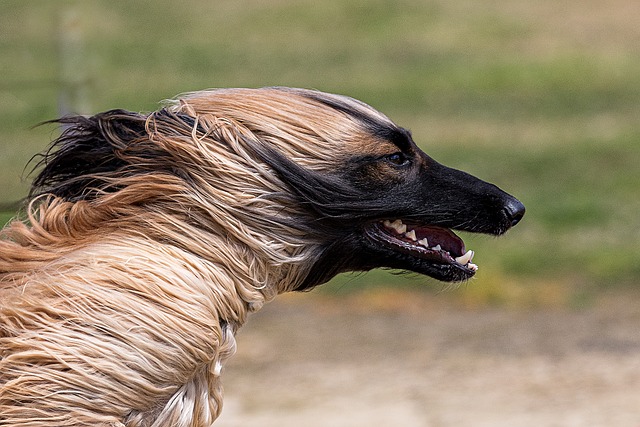
5. Scottish Terrier
The Scottish Terrier, or “Scottie,” is a small but formidable breed known for its independent spirit and strong-willed nature. Originally bred to hunt vermin in the Scottish Highlands, Scotties had to be tenacious and self-reliant. These traits are still evident today, as Scotties are known for their boldness and determination. They are often described as “one-person dogs,” forming a particularly strong bond with a single household member while remaining aloof towards others. Scotties are not typically lap dogs and enjoy having their own space. They are intelligent and can be quite stubborn, which means training should be consistent and firm. Despite their independence, Scotties are very loyal and protective of their families.
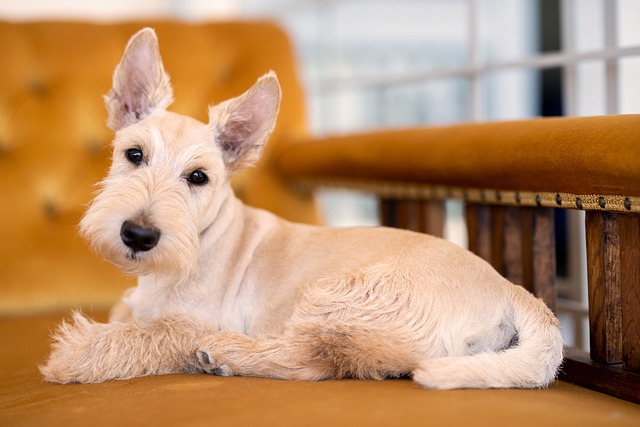
4. Alaskan Malamute
The Alaskan Malamute is a powerful and independent breed known for its endurance and strength. Bred to haul heavy loads across long distances in harsh Arctic conditions, Malamutes had to rely on their instincts and intelligence to survive. This history has made them highly self-reliant and independent thinkers. Malamutes are known for their friendly and affectionate nature towards their families, but they also have a strong sense of independence and can be quite stubborn. They require an experienced owner who can provide firm and consistent training. Malamutes enjoy physical activity and need regular exercise to stimulate them mentally and physically. Their independent nature means they can entertain themselves but also require much supervision due to their strong prey drive and tendency to explore.
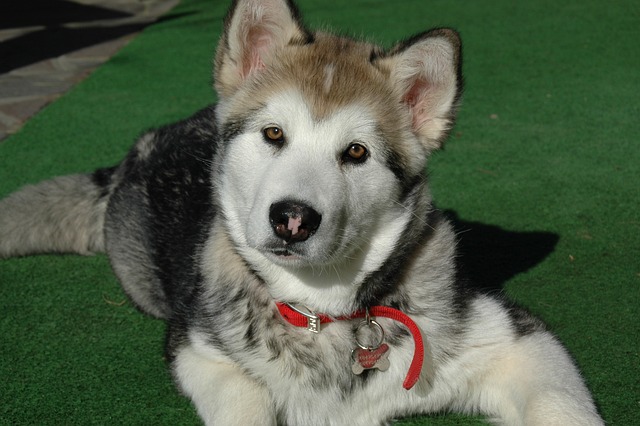
3. Shar Pei
The Shar Pei, with its distinctive wrinkled skin and blue-black tongue, is a breed that exudes independence and self-confidence. Originating from China, the Shar Pei was traditionally used for guarding, hunting, and herding. These roles required a dog that could think and act independently. Shar Peis are known for their calm and aloof demeanor. They are not overly demonstrative and can appear reserved, especially around strangers. This breed is highly intelligent and stubborn, often preferring to do things on their own terms. Training a Shar Pei requires patience and consistency, as they do not respond well to harsh methods. Despite their independent nature, Shar Peis are loyal and protective of their families, forming strong bonds with those they trust.
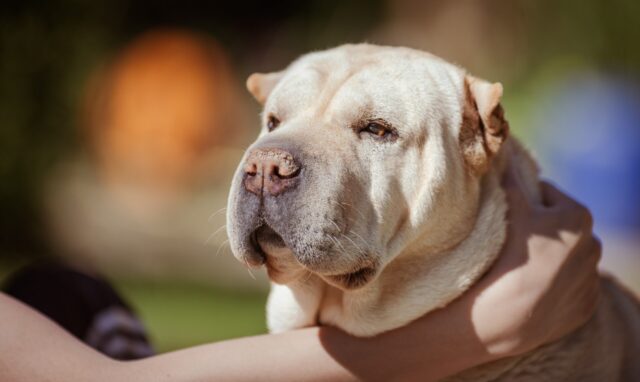
2. Saluki
The Saluki, one of the oldest known breeds, is celebrated for its grace, speed, and independence. Salukis originated from the Middle East and were bred for hunting game over vast desert terrains. This history has imbued them with a strong sense of independence and self-reliance. Salukis are known for their aloofness and can be quite reserved, especially around strangers. They are not typically clingy and enjoy their company, often finding a quiet relaxing spot. Salukis are intelligent and somewhat stubborn, requiring a gentle yet consistent approach to training. Despite their independent streak, Salukis are loyal to their families and can be affectionate once a bond is established. They require regular exercise to keep them physically and mentally stimulated and thrive in environments with space to run.
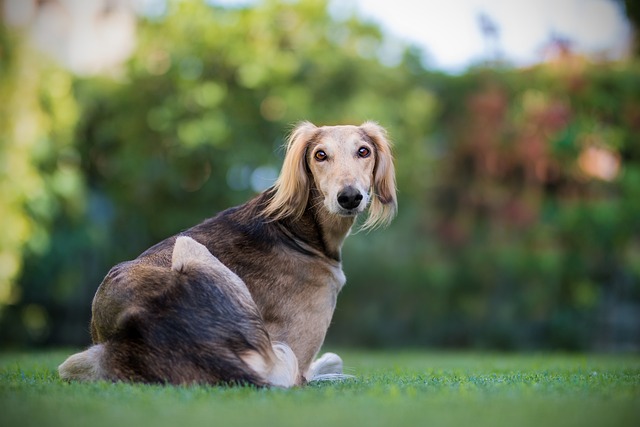
1. Chow Chow
Topping our list is the Chow Chow, a breed known for its lion-like appearance and highly independent nature. Originating from China, the Chow Chow has a long history as a working dog, used for hunting, herding, and guarding. This diverse background has contributed to their self-reliant and independent temperament. Chow Chows are often described as aloof and reserved, particularly around strangers. They are not overly demonstrative and can be quite stubborn, preferring to make their own decisions. This breed requires an owner who can provide firm and consistent training without harshness. Despite their independence, Chow Chows are loyal and protective of their families. They form strong bonds with their owners and can be quite affectionate in their own unique way. Regular exercise and mental stimulation are essential to keep a Chow Chow happy and healthy.
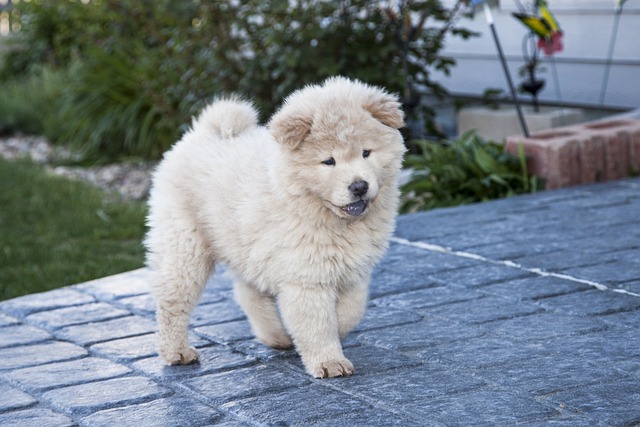
While all dogs are unique and have their own personalities, some breeds are more independent than others. These eight breeds each have their own reasons for being self-reliant, from their historical roles to their inherent characteristics. Understanding these traits can help potential dog owners choose a breed that fits their lifestyle and preferences. Whether you value a dog that can entertain itself or one that requires less constant attention, these independent breeds can offer the perfect balance of companionship and autonomy.
 Toledo, United States.
Toledo, United States.